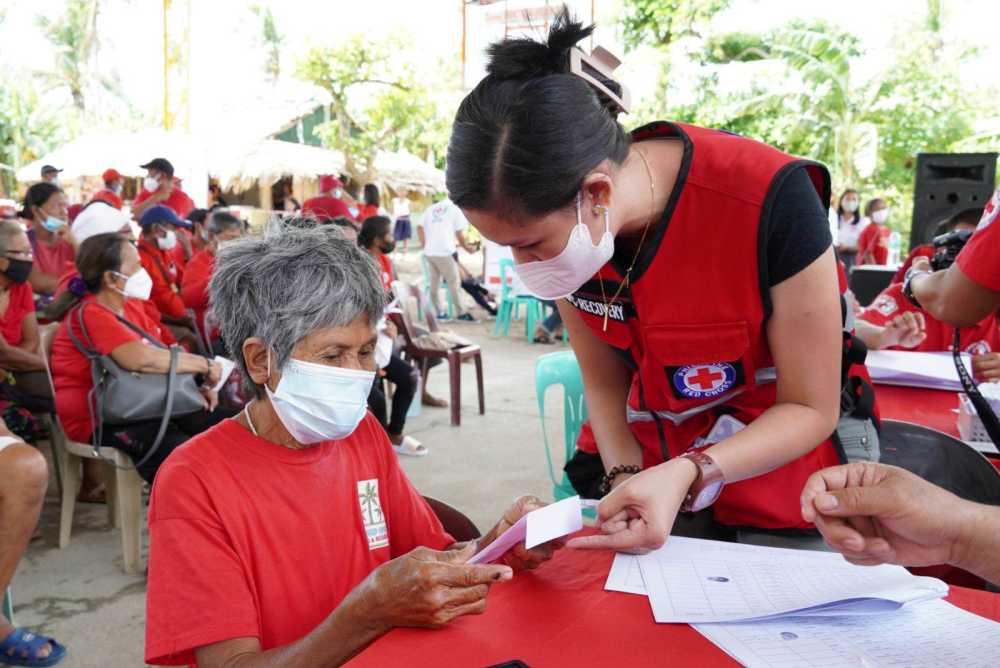The Philippine Red Cross (PRC) reaffirmed its commitment to providing essential medical assistance to communities nationwide, especially in remote areas and those affected by catastrophic events.
The PRC has been actively engaged in various initiatives to address healthcare needs and promote disease prevention and management. These initiatives focus on ensuring the well-being and safety of vulnerable populations.
Collaborative Efforts with IFRC
Acknowledging the crucial support from the International Federation of Red Cross and Red Crescent Societies (IFRC), the PRC emphasised the importance of partnership in bolstering community resilience. The PRC and IFRC have worked together to enhance the strength and wellness of communities. This was executed through collaborative efforts, including routine immunisation and COVID-19 prevention and response programs.
Mobilising Volunteers for Immunisation
As part of the Build Trust Project (BTP), the PRC has mobilised volunteers to support immunisation interventions and promote confidence in vaccination efforts. The PRC aims to increase vaccination coverage and combat vaccine hesitancy, particularly in underserved areas. This goal is meant to be reached by leveraging the dedication and commitment of volunteers,
Combatting Measles and Polio Outbreaks
From 2018 to 2023, the PRC collaborated with IFRC and other partners to conduct supplemental immunisation activities targeting measles and polio outbreaks. This concerted effort resulted in the successful vaccination of over one million children aged five. This provides vital protection against these preventable diseases.
Addressing Waterborne and Vector-Borne Diseases
In addition to immunisation campaigns, the PRC has actively campaigned against Waterborne, Influenza, Leptospirosis, and Dengue (WILD) Diseases. This is another objective that the PRC wants to achieve by raising awareness and promoting preventive measures. This will mitigate the impact of these diseases on communities and enhance overall public health resilience.
Emergency Response and Relief Operations
During disasters and emergencies, the PRC has emerged as a leading responder. They provide prompt and effective relief operations to affected communities. Through its extensive network of volunteers and resources, the PRC has played a crucial role in addressing the immediate needs of disaster-stricken areas and supporting recovery efforts.
Expanding Access to Vaccination
In response to the COVID-19 pandemic, IFRC, in collaboration with the PRC and other partners, launched the “Bakuna Buses” initiative. These mobile vaccination units were deployed to priority cities and provinces, particularly those with high-risk populations, to ensure equitable access to COVID-19 vaccines and strengthen the country’s vaccination campaign.
Community Education and Training
Additionally, the PRC conducts community education and training programs beyond immediate medical assistance. These programs aim to empower individuals and communities to proactively maintain their health. These initiatives include first aid training, hygiene promotion, and disaster preparedness workshops. The goal is to equip communities with the knowledge and skills to respond effectively to health emergencies.
A Commitment to Health and Resilience
In conclusion, the Philippine Red Cross remains steadfast in its commitment to promoting health and resilience among communities nationwide. Through collaborative partnerships, innovative initiatives, and dedicated volunteer efforts, the PRC continues to make significant strides in addressing healthcare needs, combating disease outbreaks, and providing vital assistance during emergencies. Therefore, as the nation navigates through challenges, the PRC stands as a beacon of hope and solidarity, working tirelessly to safeguard the well-being of all Filipinos.












